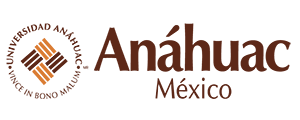A joint project of:




Intent, Reality and Future of the North American Free Trade Agreement
The Fourth Annual North American Process Symposium
October 5 - 7, 2017
Puebla, Mexico
The School of Public Policy and the Canadian Global Affairs Institute at the University of Calgary, the School of Global Studies at Universidad Anáhuac México, the College of Public Service and Community Solutions and the Morrison Institute at Arizona State University joined together to discuss the past, present, and future implications of the North American Free Trade Agreement. This conference brought together policymakers, professors, practitioners and government officials from Canada, Mexico, and the United States to address NAFTA’s impact, present and future challenges, and policy improvements to cope with the externalities associated with free trade.
Political rhetoric casts a long shadow over the direction of free trade in North America and there is a clear need to address potential roadblocks in the way of free trade between NAFTA partners. What was the original intent of NAFTA? Where do our shared interests exist? Should NAFTA be improved, and if so, where should we start? How do we encourage regional growth while simultaneously supporting those left behind by globalization? This symposium played a key role in initiating dialogue around global competition for trade, immigration policies, and energy efficiency in North America, and it addressed how to best communicate the benefits of free trade to the public.
Discussions at the previous three symposia have made it clear that business is leading the way to a more integrated and efficient North America. Participants at the fourth annual North American Process Symposium discussed how a more efficient, resourceful, and competitive North America could be developed with valuable insights from policy makers, businesses, and academicians. These combined insights contribute to recommendations for the improvement of NAFTA, and the refinement of the policies surrounding the ramifications of free trade.
Through a series of working groups and plenary sessions, attendees developed specific recommendations concerning NAFTA. The working groups focused on the North American Free Trade Agreement and its impact on trade, energy, and legal immigration. This event resulted in specific and realistic recommendations on ways to improve NAFTA so that North American leaders can make informed decisions about the future of North American trade policy.
Agenda
October 5: Opening Reception
Intercontinental Presidente Puebla Hotel
|
6:00pm - 7:30pm |
Opening Reception, Ciudad de Puebla conference room, Intercontinental Presidente Puebla Hotel Welcome from the three partner universities: ASU, UA, UC Conference: Featuring a discussion on North America Keynote Speaker: Jaime Serra Puche, Senior Partner and Chairman of Board, SAI Consultores, S.C., former Chief NAFTA negotiator & Former Mexican Minster of Commerce and Finance Moderator: Carlos Camacho Gaos, Director, School of Global Studies, Universidad Anáhuac México |
Oct. 6: Full Day Symposium
Intercontinental Presidente Puebla Hotel
|
7:30am - 8:00am |
Registration, Ciudad de Puebla conference room, Intercontinental Presidente Puebla Hotel |
|
8:00am - 8:20am |
Inaugural address by José Antonio Gali Fayad, Governor of the state of Puebla |
|
8:20am - 9:50am |
Plenary 1: The original intent of NAFTA: Current economic considerations and unfinished business
Can Jonathan Fried, Coordinator, International Economic Relations, Global Affairs Canada, former Canadian Ambassador to the WTO and former Senior Legal Counsel to the NAFTA negotiating team and member of the Canadian NAFTA management group Mex Francisco de Rosenzweig, Partner, White and Case; former deputy Minister of Foreign Trade, Mexico US Eric Farnsworth, Vice President, COA, former officer of the U.S. Trade Representative and former senior advisor to the White House special envoy for the Americas |
|
9:50am - 10:20am |
Networking Break |
|
10:20am - 11:50am |
Plenary 2: NAFTA's future, where do we go from here? Areas for improvement
Can David Bercuson, Associate Area Director, International Policy and Trade, University of Calgary Mex Juan Pablo Castañón, President, Mexican Business Coordinating Council (CCE)* US Jim Kolbe, Former U.S. Congressman and Senior Transatlantic Fellow, German Marshall Fund of the U.S. |
|
12:00pm - 1:00pm |
Conference: The future of North American Integration Keynote Speaker: Ildefonso Guajardo, Secretary of the Economy, Mexico |
| 1:10 pm - 2:40pm |
Plenary 3: Energy in North America
Can Kelly Ogle, President, Canadian Global Affairs Institute Mex Juancho Eekhout Smith, Vicepresident of Development, Ienova US Andrew Tobin, Commissioner, Arizona Corporation Commission, and Program Director, College of Public Service and Community Solutions, Arizona State University Héctor Moreira Rodríguez, Director of Mexico Energy Initiatives at the Julie Ann Wrigley Global Institute of Sustainability at Arizona State University and Commissioner at the Mexican National Hydrocarbons Commission |
|
2:40pm - 4:00pm |
Networking Lunch Kirk Adams, Chief of Staff for the Honorable Doug Ducey, Governor of Arizona, and former Speaker of the Arizona House of Representatives Amb. Francisco Suárez Dávila, former Ambassador of Mexico to Canada |
| 4:00pm - 6:00pm |
Working Group Sessions
Subgroup A1 Digital Economy Facilitator A1: Paul Beaudry, Director of Development at the School of Public Policy, University of Calgary Subgroup A2 Integrated Industries Facilitator A2: Fausto López Aguilar, Free Trade Agreements Management, Volkswagen México Juan Ciscomani, Senior Advisor for Regional and International Affairs Office of the Arizona Governor Douglas A. Ducey Subgroup A3 Intellectual Property Facilitator A3: Mauricio Jalife, Partner, Jalife & Caballero
Facilitator: Roberto Ortega Lomelín, Partner, Structura; former Executive Coordinator for the General Management of Petróleos Mexicanos
Facilitators: Eric Rojo, Vice president, US-Mexico Chamber of Commerce Evelyn Cruz, Clinical professor of Law and Director of Immigration Law and Policy Clinic, ASU
Facilitator: Agustín Barrios-Gómez, Founder and president, Foundation for Mexico’s Image, former Mexican Congressman |
| 6:30pm - 8:30pm |
Museo Internacional del Barroco Cocktail and private guided visit |
October 7: Symposium
Intercontinental Presidente Puebla Hotel
|
9:00am - 9:30am |
Participants regroup for Working Group Sessions Overview, Intercontinental Presidente Puebla Hotel |
|
9:30am - 10:30am |
Snapshots: Working Groups, Discussion on Recommendations, Next Steps and Wrap-Up
|
|
10:30am |
Guided visits
10:30am - 12:00pm Visit to Talavera Factory 12:00pm - 12:30pm Regional Museum of Cholula 12:30pm - 2:00pm Visit to Cholula
10:00am - 11:00am Visit to the Regional Museum Casa de Alfeñique 11:00am - 11:30am Parián and Artists’ Neiborghood Calle de los Dulces 11:30am - 12:15pm Visit to San Pedro Art Museum 12:15pm - 12:40pm Santo Domingo Temple (anexa Capilla del Rosario) 12:40pm - 1:40pm City Hall Town Square Cathedral
10:30am - 12:00pm Visit to Evolution Museum Puebla 12:00pm - 12:30pm Tour of the Forts of Loreto and Guadalupe Tour of theme parks 12:30pm - 1:15pm Cable car tour |
Plenary 1: The original intent of NAFTA: Current economic considerations and unfinished business
NAFTA was recreated, reconfigured and renegotiated numerous times before it was signed and ratified by the three nations’ leaders and congresses in 1993. Despite years of deliberation, last minute deals and concessions were struck in order to ensure its passing. Economists today express a wide variety of viewpoints and opinions about the effects that NAFTA has had on employment, trade, and immigration. Regardless of overarching disagreements, trade between the three nations increased from $290 billion to $1.1 trillion from 1993 to 2016.
Presently, U.S. politicians blame NAFTA for the decline in domestic manufacturing, Mexican farmers blame NAFTA for the fall is corn prices, and Canada wants to prioritize the infrastructure to sustain a North American energy market. Meanwhile, NAFTA did not anticipate the importance of
the digital economy and sidestepped the issue of labor mobility. Have technological advances and geopolitical considerations limited NAFTA’s ability to meet its original goals? Has NAFTA created inefficiencies, inequalities, or bad deals? What was the original intent of NAFTA, and has NAFTA met the goals it was created to attain?
Plenary 2: Energy in North America
NAFTA nations share a vested interest in the solvency and growth of the North American energy sector. There is also a shared desire to turn North America into a world energy powerhouse. Canada is the United States' largest energy trading partner with over $140 billion dollars in trade in 2013.
Mexico has reformed its energy market by opening to outside investors, and has increased efforts to expand its power grid through securing international investment in large-scale energy production projects. All three nations are investing resources into developing sources of renewable and clean energy. Despite optimism about developing an integrated energy infrastructure and energy market, potential threats include legislation proposing a Border Tax on incoming energy sources from Mexico, legislative and environmental roadblocks in the development of pipelines, and fluctuations in global energy prices.
What recommendations should policy makers consider about the continuity and longevity of trilateral energy partnerships as they negotiate policy changes? What political hurdles prevent the rise of an invigorated North American energy trading partnership? And, what major improvements should be made to NAFTA so that businesses can continue to increase North America’s capital flow for energy infrastructure, including renewable energy?
Plenary 3: NAFTA’s future, where do we go from here?
Integrated supply chains, growing consumer purchasing power, the digital economy and the rise of new energy sources have transformed the global landscape. Should NAFTA be altered, left alone, or replaced by another agreement entirely? If sectors such as energy, the digital economy, intellectual property, and documented labor mobility are negotiated, which policies should be altered to meet the interests of all partners, individually and collectively?
How would an improved North American trade agreement bolster North America’s ability to compete with other manufacturing leaders such as China? What policy responses can be molded to fit each nation’s economic needs, while simultaneously invigorating North America’s competitiveness in world markets?